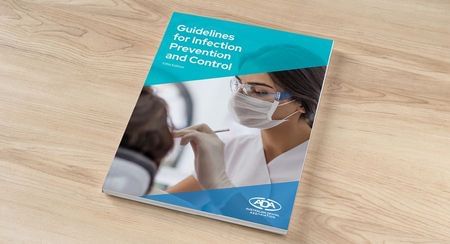Securing smiles for Australians: ADA's key advocacy achievements for 2023


The ADA is fiercely committed to advocating for the oral health of all Australians, as well as the sustainability of dental practice across the country. Throughout last year, the ADA has championed a comprehensive advocacy agenda, tackling critical issues and achieving significant wins for the dental profession and the public.
This update highlights some of the key achievements progressed or secured in 2023:
- Improved access to care We pushed for better access to oral care for all Australians, including through submissions to major inquiries. (Select Committee on Dental Services, June 2023);
- Regulation and standards We participated in consultations on various regulations and standards, including accreditation (Ahpra, February 2023) and telehealth (Medical Board of Australia, February 2023);
- Public health We commented on policies related to public health, such as tobacco control (Exposure Draft Legislation, July 2023) and diabetes and oral health linkages (Inquiry into Diabetes, September 2023);
- Competition and consumer issues We monitored competition within the dental industry, providing feedback on proposed conduct (ACCC – Health Partners, July 2023) and private health insurer practices that are of concern (Wider Issues in Private Health Insurance, May 2023); and
- Sustainable practice We recognised the environmental impact of healthcare, advised government on this issue, and led promotion of sustainability in dental practices (Draft Sustainable Healthcare Module, February 2023, and we published the Sustainable Dentistry: How-to Guide for Australian Dental Practices, August 2023).
In the following sections, we discuss in a bit more detail, challenges and successes on some of the major topics that have positively impacted the dental landscape in Australia.
The dental profession and the public
The dental profession plays a vital role in promoting public health. We’re committed to fostering strong connections between dentists and the community. We achieve this through ongoing initiatives such as:
- Oral health promotion We continued to actively raise awareness about the importance of oral health through campaigns and resources, including the teeth.org.au website; and
- 2023 Dental Health Week This annual event is a cornerstone of our public outreach efforts. In 2023, we successfully leveraged the week to spark national conversations. We not only delivered engaging activities but also ensured updates to the Oral Health Consensus Statement received widespread media coverage.
By combining engaging activities with impactful updates like the Consensus Statement, we ensure oral health remains a top-of-mind topic for Australians.
Payroll tax
In 2023, a new interpretation of existing payroll tax laws in Australia emerged, potentially impacting dental practices. State revenue offices re-evaluated how payroll tax applies to independent contractor dentists working under service facility agreements (SFAs). This could reclassify them as employees, subjecting practices to payroll taxes ranging from 5.45% to 6.85%.
A key challenge arose from the retrospective nature of the potential liability. Dental practices could face significant financial burdens for unpaid taxes dating back five years, along with penalties. Additionally, uncertainty surrounding the classification of independent contractors created confusion for practice operators regarding their tax obligations.
The ADA has been working hard to secure enhanced clarity and better options for our members. On a jurisdictional basis, this has led to:
- South Australian undertakings that go to avoiding retrospective application of payroll tax, associated interest, or penalty tax;
- Tasmania confirming it is not drafting guidance material, nor conducting an active compliance program, and undertaking to consult with the ADA should this change;
- Western Australia confirming it is not harmonised with other jurisdictions regarding the treatment of contractors. Accordingly, we expect this issue won’t impact WA practices; and
- NSW and Victoria agreeing to engage with the ADA via their agencies responsible for administering payroll tax.
Dental assistant shortage
We understand that some practices faced significant difficulties filling dental assistant positions in 2023. This lack of qualified staff resulted in some cases in increased workload, reduced efficiency, and other challenges. These challenges appear to stem from a complex interplay of factors, potentially including competition for talent, training and immigration constraints, and an uncertain career path.
During 2023 the ADA pursued a range of initiatives including:
- Making representations to the responsible federal minister about adjustments to the skills priority list, and to traineeship support;
- Partnering with the Dental Assistants Professional Association to amplify our efforts in this space, and specifically to develop and conduct a detailed survey of its members; and
- Developing a social media and web site campaign that leverages case studies of thriving dental assistants, using images, video, copy and interviews – launched last month – to attract potential candidates to consider dental assisting as a career.
Sustainable dentistry
We pursued a project around how dentistry as a profession could integrate sustainable development goals into daily practice and support a shift to a green economy in the pursuit of healthy lives and wellbeing through all stages of life.
This involved a range of activities, including developing a How-to Guide for Australian Dental Practices, a practical resource for dental teams wishing to make their practices more sustainable. By focusing on impactful areas including stock inventory management, energy efficiency, amalgam waste reduction, enhancing the built environment, active travel and sustainable measurement and evaluation, this guide aims to empower dental practitioners to make informed decisions and implement sustainable changes.
Results from a survey of ADA members run in late 2023 indicate a growing commitment to sustainable dentistry practices. The report shows a notable increase (12.2% above the prior year) of practices indicating they have adopted a strong or moderate focus on sustainable dentistry practices in the past year.
Food labelling
We championed awareness of sugars and their oral health effects to Food Standards Australia New Zealand on its proposal P1058 – nutrition labelling about added sugars; and its proposal P1062 – defining added sugars for claims. We engaged in detailed collaboration with several nutrition focused public health advocacy groups.
This has helped influence positive changes in the Food Standards Code, including clearer labelling – products high in sugar can no longer mislead consumers with ‘no added sugar’ claims, even if they technically fit the limited definition, and better-informed choices – empowering consumers to make informed decisions about sugar content, regardless of technicalities.
While we advocated for even stricter definitions, these new rules are a significant step forward. In future we expect to push for a more comprehensive definition and urge the inclusion of all free sugars in the nutrition information panel.
Private health insurance
We made representations to the ACCC about applications by HCF and by Health Partners Limited which sought authorisation under competition law for company owned, or preferred dental provider networks.
Both applicants sought authorisation for a period of 10 years, and argued that a range of public benefits would flow from the specified conduct. The ADA engaged closely in the ACCC’s consultations and commented on each application specifically, as well as on wider issues beyond the applications’ scope.
After considering the information before it, the ACCC decided to grant authorisation to each applicant for five years, rather than the 10 years each had sought. It recognised a narrower range of public benefits than those posited by applicants. We believe the ADA has contributed to enhanced awareness of the risk of detriment, relative to the strength of competition, in dental services.
This article was first published in the ADA's News Bulletin, May 2024



